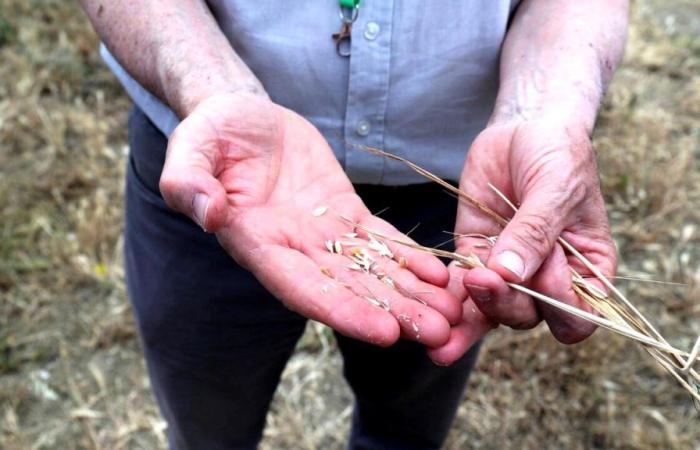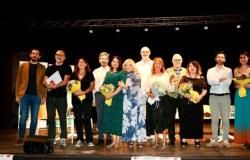An unprecedented crisis has hit Sicily’s agriculture and, in particular, cereal cultivation. In the fields the ears are empty. The drop in production, in some areas, reached 70%, something that has never happened in living memory. The worst drought in a century is exacerbated by a water system in poor condition, with broken pipes across the island and dams out of order. Despite this extreme situation, the price of wheat is very low (30 cents per kilo on average) and does not even cover production costs.
“I want to go and live in… the mountains”, those young people on the Madonie mountains who study to be shepherds
“We are not just a company. We must safeguard a territory for future generations – explains Marco Romano who manages the Chibò and Barbarigo cereal company in Petralia Sottana in the province of Palermo, in the heart of Sicily -. For this reason we are not available to give up everything and cover our land with solar panels, but many companies are in debt up to their necks and are giving in, because they are faced with a crossroads: on the one hand, tiring work that gives no income, on the other, an easy and safe”.
And so, in the name of the energy transition, we speculate on the crisis and mortgage the future of the Sicilian territory. “If you cross Sicily from Catania to Palermo, you see a violated landscape passing by, transfigured by hectares and hectares of solar panels. The entities that are installing them are investment funds, companies such as Engi, the French multinational that has created the most largest agrivoltaic plant in Europe between Mazara del Vallo and Marsala, to sell 80% of the energy to Amazon Italia”, denounces Slow Food Italia.
“If energy policies were integrated with agricultural and cultural, social and economic policies, we would never have arrived at this dramatic and paradoxical competition between agriculture and the environment. If politics had a vision of the future, it would work to support companies in this critical phase; to restore the fertility of the soil in a region that has more than 50% of the land at risk of desertification; to protect the beauty of the landscape; to support those who decide to stay and stop the constant hemorrhage of young people Italy as a whole must choose whether to move towards widespread, sustainable and local production or towards private monopolies and an ever-increasing dependence on foreign imports”, underlines Serena Milano, director of Slow Food Italy.
“We need an energy but also ecological transition, we must protect our landscape and, as Article 9 of the Constitution says, ‘biodiversity, the environment and ecosystems’. The Sicilian varieties of durum wheat, often abandoned to make way commercial varieties with higher yields are able to adapt better to extreme climatic conditions. There are traditional varieties of dry-farmed vegetables, almost forgotten, that can go through an entire season without being irrigated has never been sustainable and is even less so today that there is no water. We must review an entire production model and invest resources differently, trying to support virtuous farmers who believe in the principles of agroecology”, underlines Francesco. Sottile, professor of biodiversity and quality of agricultural crops at the University of Palermo and scientific biodiversity coordinator for Slow Food Italia.






